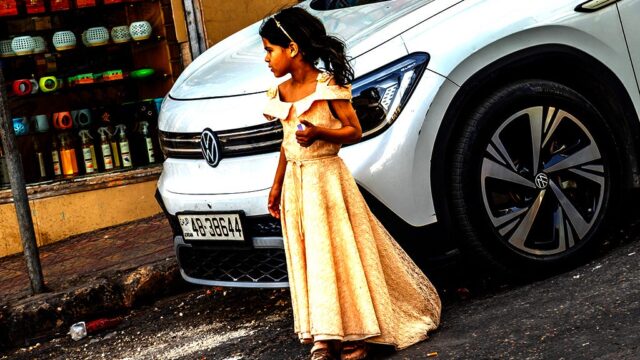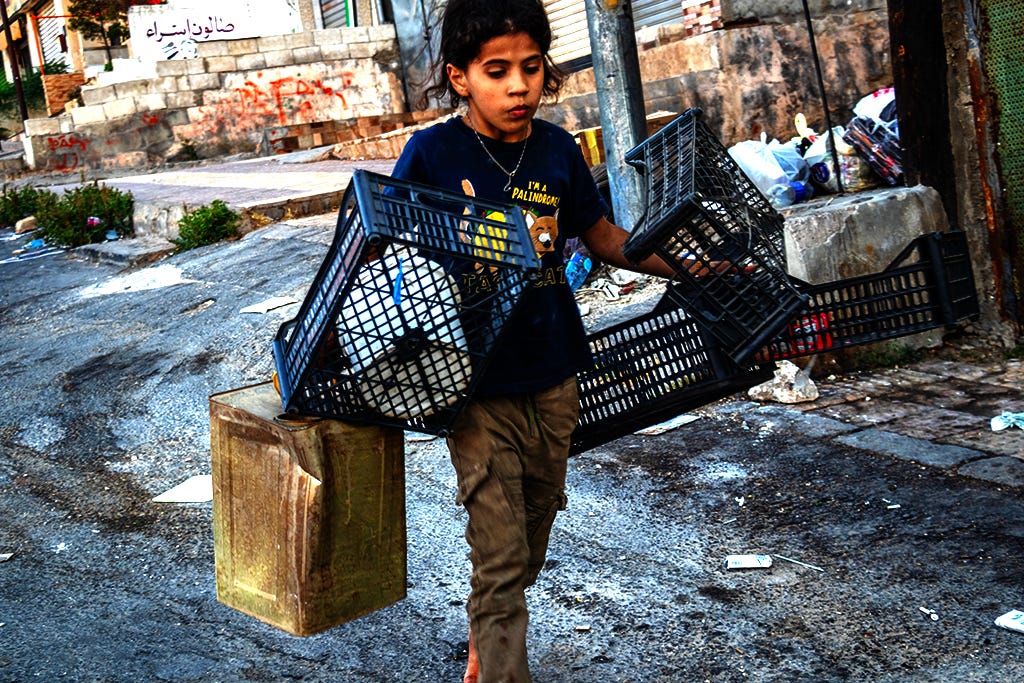5-Star Jordan

Yesterday, I walked miles through two neighborhoods, Al-Wehdat and Tla al-Ali. As usual, I had no idea what I would see. I had no maps and had not seen a single photo of either place. I did know Al-Wehdat began as a 1955 refugee camp for Palestinians. In Beirut, I had wandered through Sabra, another neighborhood of refugees fleeing Judeo Christian Satanism.
Leaving my room just after 4AM, I trekked south. Seeing a coffee stand on Quraysh, I bought a cup from a chubby teenager. Curious, a younger boy sat next to me on the curb. Two smiling men asked to have their photo taken. No one spoke English, and my Arabic is limited to “shukran,” which I’m too shy or retarded to even pronounce. In the US, it would be near suicidal to roam mapless through any city in the middle of the night, but Amman, like all cities across Asia, South Asia and the Middle East, is perfectly safe.
“How old are you?” I asked the boy twice.
“My name is Hamza. He did add, “Very good!” when I showed him our photo.
Moving on, I climbed Hassan. My habit of always carrying a laptop and camera didn’t make this easier. Though it wasn’t 5AM, there were takeaway coffee spots open. Amman cafés where you linger are mostly used for hookah puffing. Baudelaire, “II rêve d’échafauds en fumant son houka.” He dreams of scaffolds while smoking his hookah. My translation of “Ennui” into Vietnamese has been read by maybe 12 very bored people!
For my second coffee, I again sat on the curb, until the white haired man steered me to a bruised red plastic chair. As I said thank you, he lifted a white lily to my nose. I had no idea why he had such a flower around.
Seventy years after their violent displacement, the Palestinians of Al-Wehdat have built a thriving community filled with shops. I saw many car repair garages. There were almost no trees, though, and just about every building was made of cinder blocks, grimy and sooty over time. The better off have moved away, we can assume. Still, this resilience is impressive. I imagine Gaza before the current genocide to be similar. People must establish normalcy so their kids can study, play and hope. Al-Wehdat even has its own professional soccer team! Its two imports come from the Ivory Coast and Ghana. It plays at the 18,000 seat King Abdullah II Stadium.
The housing improved as I huffed into Jabal Al-Taj. Though it was only 6:24AM, I ran into two girls under 11 scavenging for recyclables.
I’ve only met Palestinians in Amman. One was the owner of taxi business in Buffalo. Another, born in Kuwait, had spent nearly five years in the States, where he got a degree in mechanical engineering. After this sojourn in Oklahoma and Massachusetts, he returned to Kuwait, but wasn’t happy there either, so Jordan is where he will likely die.
“Did you like Massachusetts or Oklahoma?”
“Oklahoma!”
“Interesting.”
“The women, they’re nicer.” This memory made him grin, showing front teeth that were nearly black or gone. “And the food!”
“Like what?”
“Hardee’s.”
“Roast beef?”
“Yes, roast beef.”
“What about Tex-Mex?”
“Taco Bell!”
Nothing beats gorging on fake beef burritos after making love to a corn and corn syrup fattened beauty, don’t you agree?
In Kuwait, he got a cushy desk job. “Kuwaitis don’t like to work, so I became lazy, just like them.” Getting paid to do little doesn’t sound bad, but a soft, nearly useless life breeds ennui and corrodes your very soul.
“Why didn’t you stay?”
“There’s nothing there. Kuwait is just sand.”
“And it’s so small.”
“Jordan is better. There are forests.” Up north near Syria. The air is so dry here, my handwashed shirts and shorts dry in no time.
Kuwaitis are like Arab Jews, he went on. They’re very materialistic. Their faith is weak, unlike, for example, the Yemenis, who are also energetic and fearless. They’re gaining much respect across the Arab world for attacking Jews and Americans.
After Al-Wehdat, I took a taxi to Tla al-Ali. The Palestinian driver spoke zero English, so we couldn’t talk. To make slightly more, he didn’t turn his meter on. He strugged to understand “Chinese embassy.” I really wanted to see the Israeli compound, in the same neighborhood, but couldn’t bring myself to say Israel.
With multi million dollar houses, Tla al-Ali was a different world. Some private homes were so massive, they looked like embassies. There’s the Royal Automobile Museum, where 80 of King Hussein’s cars and motorcycles are displayed. Much of Amman is made for the automobile, with richer neighborhoods mostly devoid of shops. Affluent Jordanians are educated in the West, speak perfect English and live on pristine, well landscaped streets that would make rich Californians envious.
There’s one problem. This desert mirage can only be maintained by placating Judeo Christian Satanists. Jordan tried to intercept Iranian missiles headed for Haifa and Tel Aviv. Jewish planes flew over its airspace to bomb Iran. This kingdom, then, is Israel’s first line of defense against its greatest enemy.
Portraits of King Abdullah II often show him in a military uniform, but who he is fighting for? His Arab headdress is mostly for appearance. Laughing, one Palestinian told me, “His Arabic was so bad, but it has gotten better.”
Living mostly in Germany, the freakish king of Thailand also looks kosher in official portraits.
You mustn’t assume there are political prisoners here, though. As General Waddah Hmoud declared on TV in 2011, the only ones locked up are terrorists. Plus, “All prisons in Jordan are 5-stars.”
To protest against what’s happening in Gaza, there was a one-day strike here, with nearly all businesses shut down. The enraged government couldn’t arrest millions of people. Any Jordanian going further than that risks experiencing, for the first time in his life, the most luxurious 5-star hotel.

[Amman, 7/2/25]

[Al Wehdat in Amman on 7-2-25]

[Al Wehdat in Amman on 7-2-25]

[Al Wehdat in Amman on 7/2/25]
